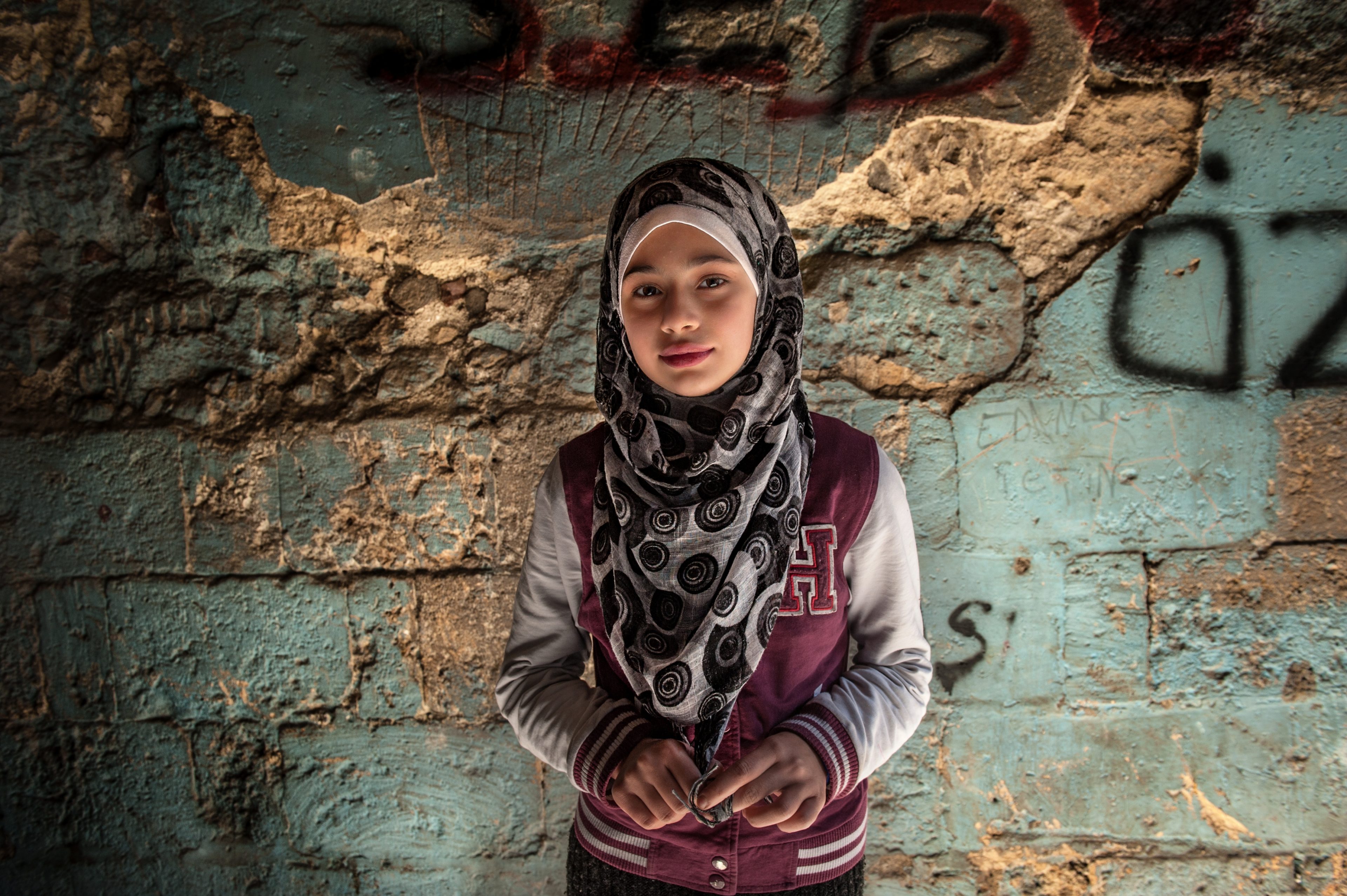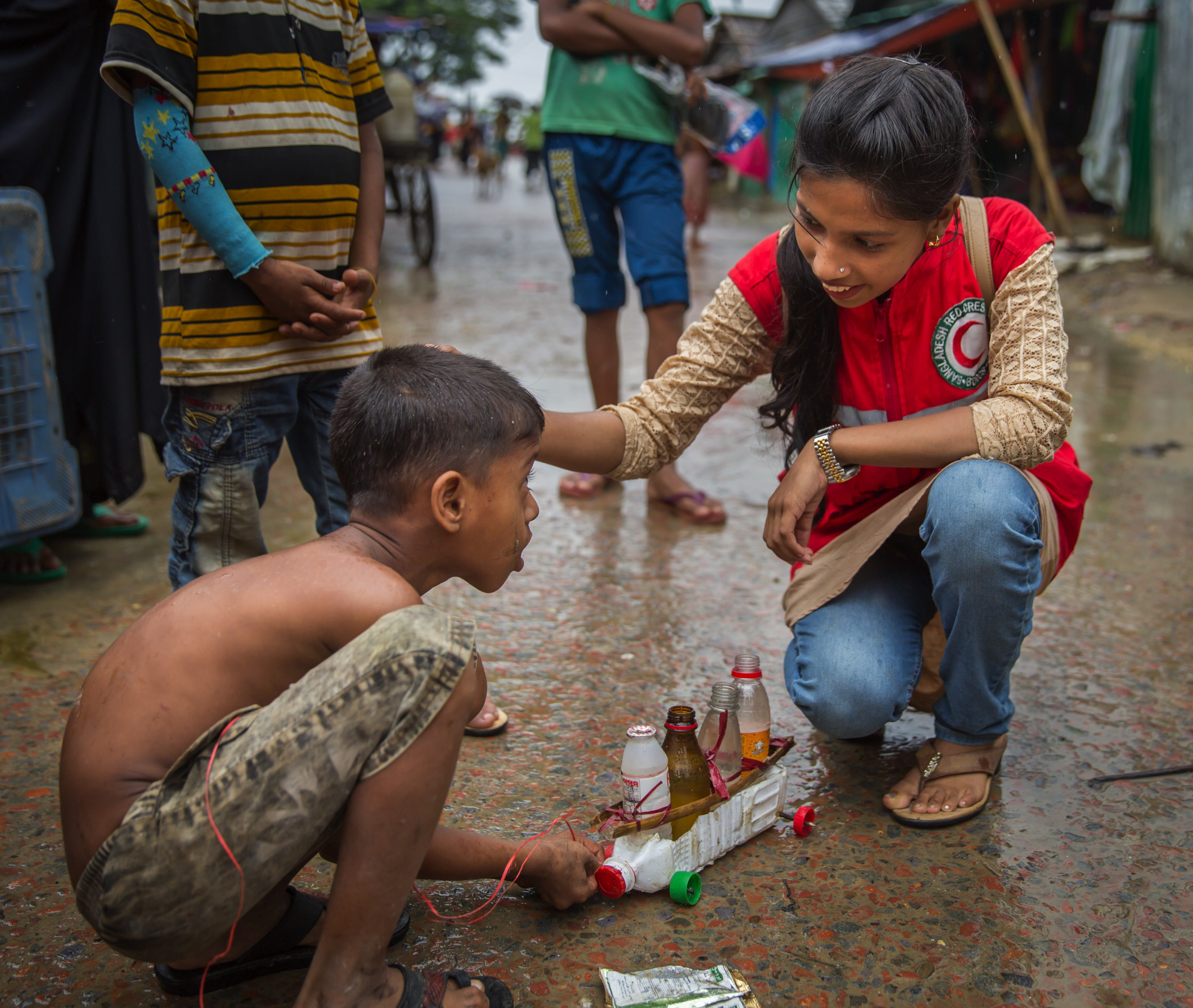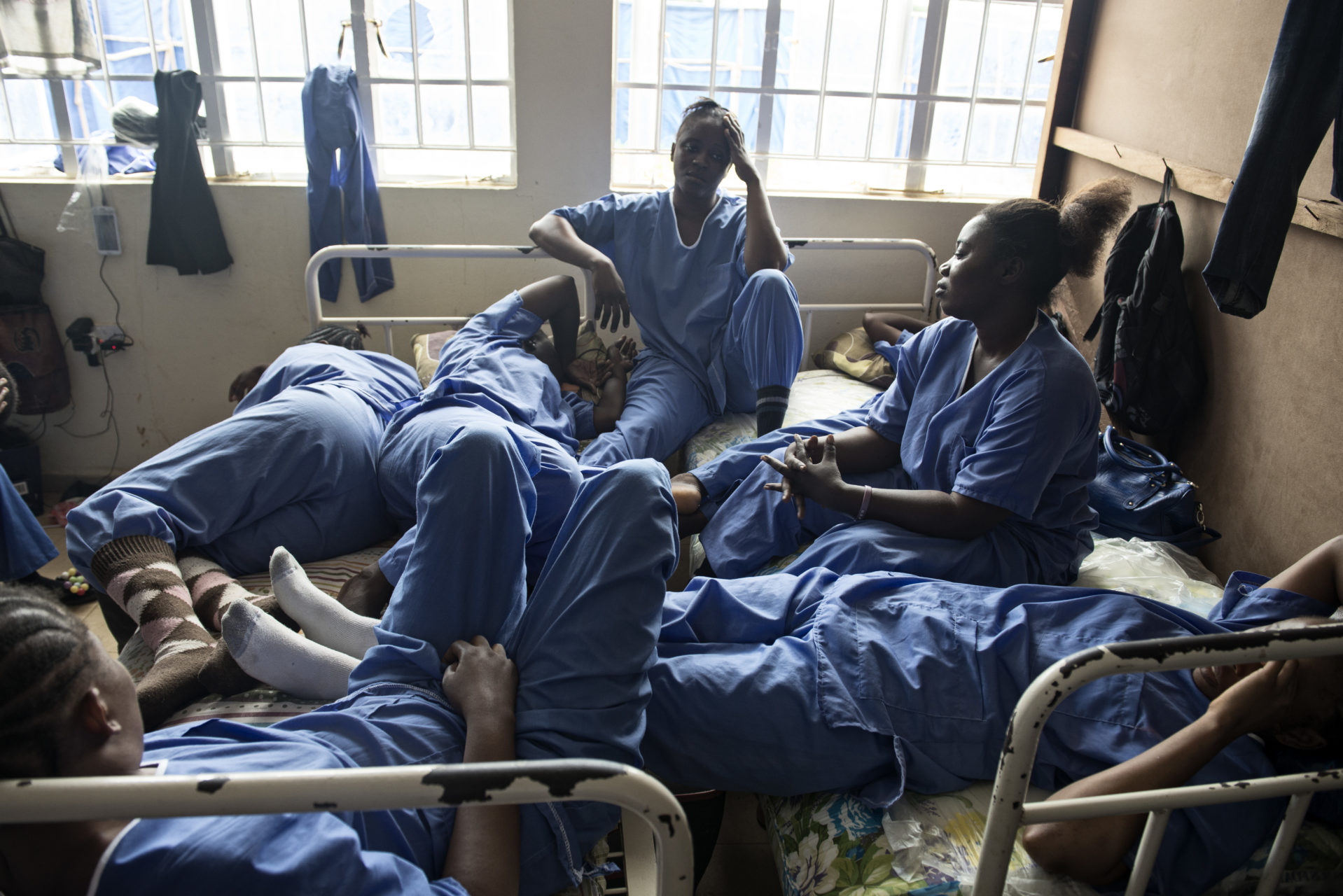
Protection of Civilians in Conflict
The scale and severity of human suffering in armed conflicts worldwide continues to grow at an alarming pace, as conflicts have forced more than 60 million people from their homes, resulting in the greatest population displacement since World War II. Civilian deaths from explosive weapons have increased by 165% since 2011, with 2017 being the most dangerous year for civilians according to some monitors. Conflict in densely populated areas exacerbates risks to civilians and disrupts livelihoods, education, health systems, and critical infrastructure, creating conditions for severe food insecurity and the spread of deadly disease.
Both state and nonstate parties to conflict demonstrate a failure to distinguish between military objectives and civilians and civilian objects and a failure to take all feasible precautions in the conduct of hostilities. Much of the harm civilians experience in conflict is indiscriminate, foreseeable, and preventable. This is precisely what international humanitarian law, also known as the law of armed conflict, is for: to limit the effects of armed conflict on people.

What Can be Done to Better Protect Civilians?
Increase U.S. Military Transparency for Civilian Casualties
To enhance U.S. government transparency regarding civilian casualties from U.S. government or U.S.-led coalition operations, we recommend that the United States: Mandate monthly, publicly releasable estimates of civilian casualties caused by U.S. operations and by U.S.-led coalition partners; Expand the existing annual report that provides information about U.S. military strikes and combatant and noncombatant deaths resulting from operations to include U.S.-led coalition operations and damage to civilian infrastructure; and Authorize resources to bolster the capacity of the military to investigate allegations of civilian harm.
Enhance Civilian Harm Mitigation in U.S. Military Operations
The Secretaries of Defense and State should assure staffing to adequately support the protection of civilians, particularly to support the new senior DoD official responsible for civilian casualty policy. We recommend that Congress: Call for a report and analysis of staffing pertaining to the protection of civilians in relation to military operations and building partner capacity; and Call for an assessment report on civilian harm related to anti-ISIS coalition operations and how to improve civilian harm mitigation measures
Improve the Conduct of Partner Forces
DoD and DoS should further the plan to professionalize partner forces, putting civilian protection at the forefront. We recommend that the United States: Call for an independent review of partner-force civilian harm mitigation efforts; and Authorize specific resources to enhance the ability of DIILS, DIRI, and IMET to implement institution building programs and recruit appropriate staff.
Condition Arms Sales on Compliance With International Humanitarian Law (IHL)
We recommend that the United States: Prohibit the sale, license, or export of defense articles or services to foreign security services until it is certified that the recipient has not engaged in violations of IHL or human rights; Require the Secretaries of Defense and State to publicly certify conditions tied to the sale, license, or export of defense articles or defense services, including building capacities of recipients to comply with IHL and mitigate civilian harm; and Suspend sales, licensing, or export based on credible information that the recipient has or is committing violations, violates the enduser agreement, or fails to provide appropriate information thereto.

Resources for Congressional Staff
Protecting Humanity in War: Recommendations for Congressional Action. InterAction, 2017. Topline recommendations for Congress to enhance U.S. policy to protect civilians in armed conflict.
The Protection of Civilians in U.S. Partnered Operations InterAction, CSIS, and CIVIC, 2018. An examination of the consequences and policy issues of the United States’ increased use partner forces to achieve common security objectives upon the protection of civilians.
Protection of Civilians in Mosul: Identifying Lessons for Contingency Planning InterAction and CIVIC, 2017. A report of a round-table review that included Iraqi embassy officials, US policymakers and military officials, and humanitarian actors to inform civilian protection efforts.
International Humanitarian Law: Answers to your Questions. International Committee of the Red Cross, 2015. An introduction to international humanitarian law, including the origins, development, and modern-day application of IHL.